Are Obfuscated Servers Slower? [All You Need to Know]
3 min. read
Updated on
Read our disclosure page to find out how can you help VPNCentral sustain the editorial team Read more
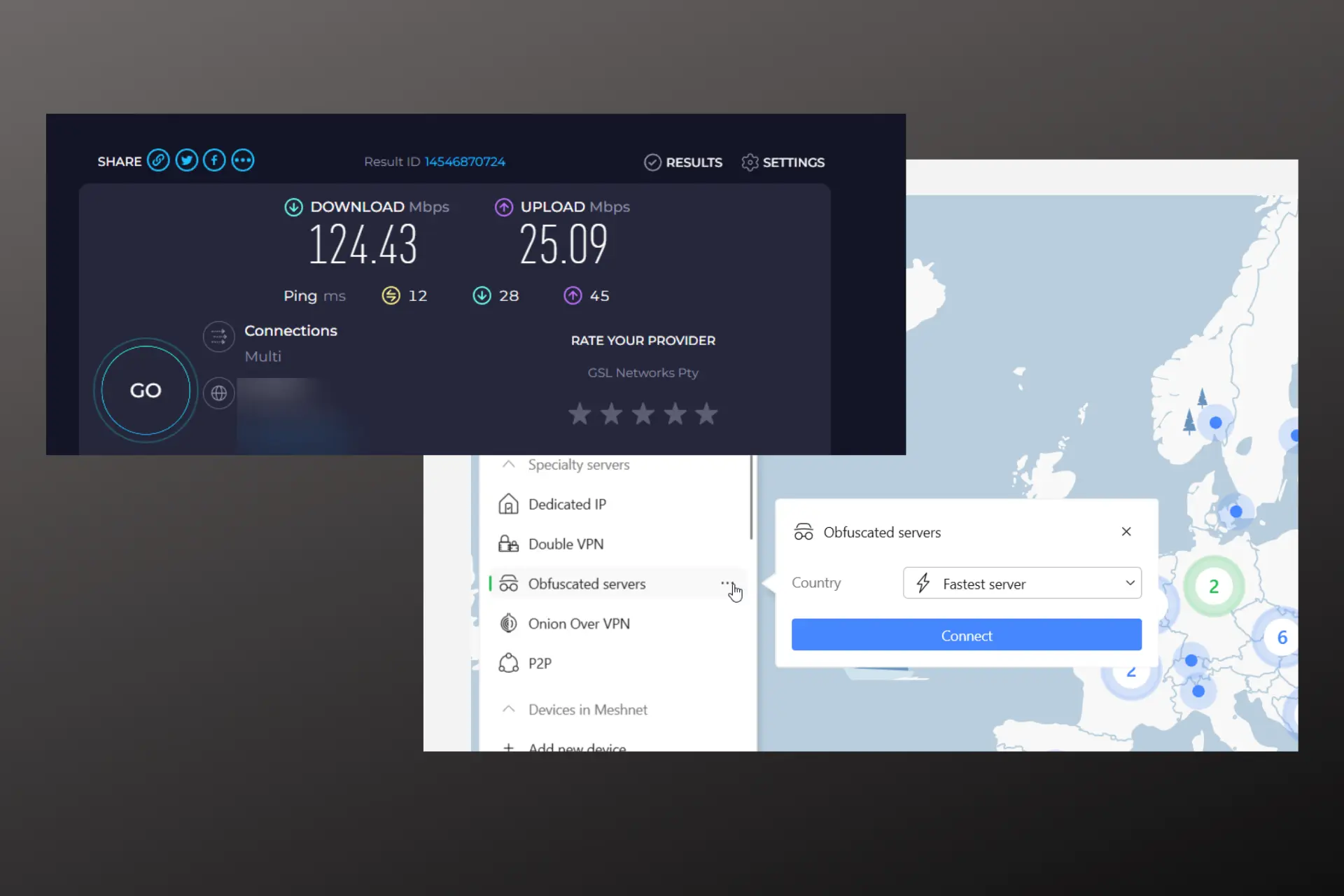
Governments, streaming services, and gaming websites continue to crack down on using VPNs through techniques such as deep packet inspection (DPI).
But thanks to popular VPN providers that offer obfuscated servers as part of their service.
These servers hide VPN traffic from DPI, so it looks like you are browsing through regular traffic.
Ultimately, it provides you with greater online privacy and security.
However, the question remains: are obfuscated servers slower than regular VPN servers?
The simple is yes, it does. We tested a few of them and will show you what we discovered soon. Keep reading!
How do obfuscated servers affect internet speed?
Obfuscated servers add extra layers of encryption and code, which can slow down your internet connection.
They make your VPN traffic look like regular HTTPS traffic such that it becomes difficult for DPI systems to distinguish between the two traffic and your blocked VPN.
Simply put, they hide the fact that you’re using a VPN.
However, the additional processing required to encrypt and decrypt traffic can potentially affect internet speed.
And this impact can vary depending on some factors, such as the server’s quality and your location.
On the other hand, if your ISP restricts your internet access or throttles your speeds, connecting to an obfuscated server should improve it.
Are obfuscated servers slower?
Our tests revealed that obfuscated servers can be slightly slower than regular VPN servers.
We conducted our tests using NordVPN, which offers both obfuscated and regular VPN servers.
The speed of obfuscated servers was tested against regular servers in the same location and country.
Here are our findings:
![]() US regular server:
US regular server:

![]() US obfuscated server:
US obfuscated server:
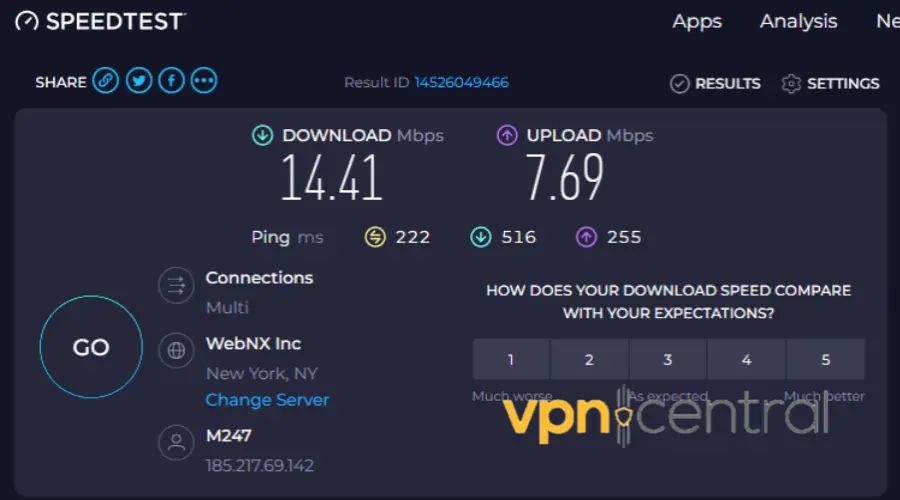
US regular servers had an average download speed of 26.12 Mbps, while the obfuscated server had an average download speed of 14. 41 Mbps.
That was a drastic 44% decrease.
![]() UK regular server:
UK regular server:

![]() UK obfuscated server:
UK obfuscated server:

UK regular server had an average download speed of 11.48 Mbps, while the obfuscated server had an average download speed of 9.43 Mbps.
That was a 17.85% decrease.
![]() Germany regular server:
Germany regular server:

![]() Germany obfuscated server:
Germany obfuscated server:
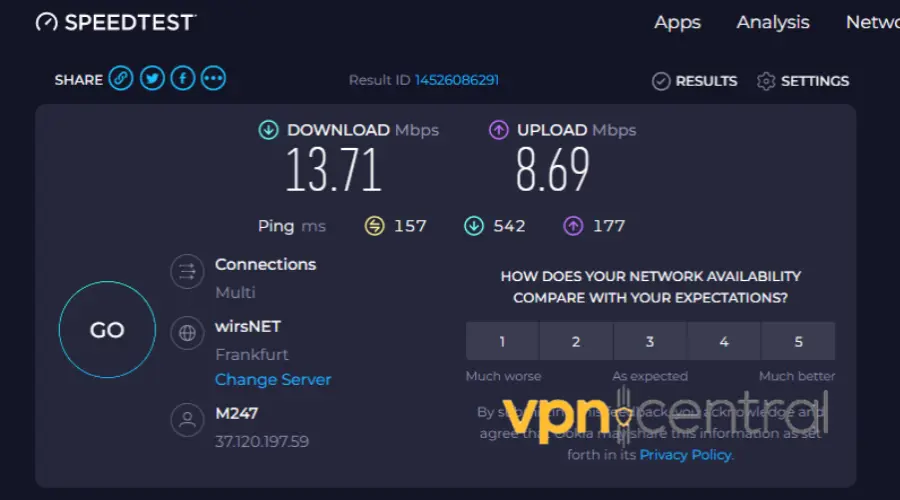
Germany’s regular server had an average download speed of 15.37 Mbps, while the obfuscated server had an average download speed of 13.71 Mbps.
That was a 10.8% decrease.
In all the cases, the regular server was actually faster than the obfuscated server.
However, as you can see, the difference in speed between the obfuscated and regular servers in the last two locations is relatively small.
Consequently, these results may vary depending on the user’s location, the quality of the VPN provider’s servers, and the user’s internet connection.
And that’s why we tested with various locations.
Overall, the decrease in speed is not too bad to sacrifice for greater privacy and security.
Summary
In summary, obfuscated servers can potentially be slower than regular VPN servers due to the additional processing required to encrypt and decrypt traffic.
However, the impact on speed is relatively small and may vary depending on a number of factors.
Despite the potential impact on speed, using obfuscated servers is still an essential tool for users who need to bypass DPI and other methods used by governments and ISPs to block VPN services.







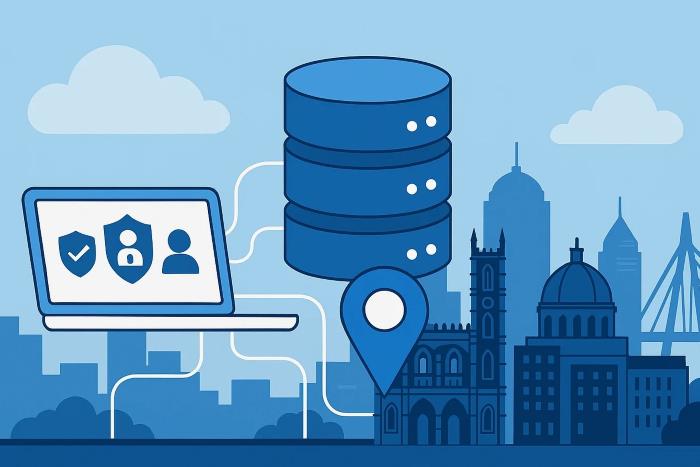
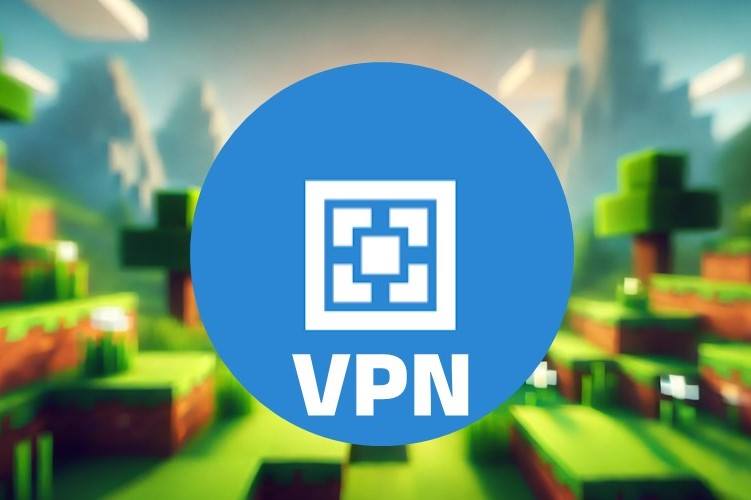
User forum
0 messages